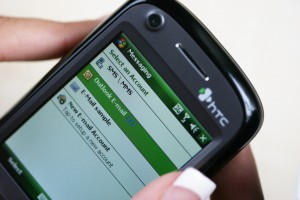
If you own a smartphone – and even if not – you know the endless discussions about the pros and cons of owning an iPhone or other iOS device compared to any device that runs with Android. However, those are not the only options you have! Next to Blackberry, Windows Phone is an operating system available for a number of mobile phones.
Whether it’s an option for you or not is your very own decision, however we want to point out the differences between Windows Phone and the Android OS, and hopefully this will not only get you some more knowledge, but also helps you in your decision process.
The Difference between Windows Phone and Android
In comparison to the Windows operating system for mobile devices, Android seems rather young. However, in recent years, the Android OS has gained popularity quickly and overshadows the “older” alternative.
Licensing
The most striking difference between the two may be the licensing. While Android is an open source software with a Linux-based core, hardware manufacturers have to pay to use Windows Phone and it’s predecessor Windows Mobile on their manufactured devices. It’s a proprietary software that belongs to Microsoft.
Hardware
The Windows Phone that succeeded the previous versions of Windows Mobile, with Windows Mobile 10 being the newest release that is said to be available later in 2015, is available for a number of mobile phone manufacturers. HTC, LG, Samsung, and Nokia may be the most prominent and well-known here, but partners like Acer, Lenovo, Toshiba, and Fujitsu (among others)
Android, as the largest selling operating system for mobile devices, is supported by the most well-known phone manufacturers as well, including HTC, Motorola, LG, Sony (Experia), Samsung, and Google (Nexus). Other companies like Acer, Asus, Huawei, or ZTE support the Android OS as well.
Game and App Development
Due to its “openness” and the code being available openly, Android allows not only manufacturers to create content for Android phones. Developers, whether they do it professionally or as a hobby, can create and develop apps, games, and other kinds of content for their Android phones or tablets. They can be shared in the Google Play store, either for free or for a small fee.
Thus, contrary to the more rigid set of apps and programs available for Windows Phones, Android devices can be easily personalized and offer a wide range of function via different apps available for a broad public. Thus, developers can reach a large number of people to spread their work and knowledge, and users benefit from a large variety.
Updates
Major updates for Android are released by Google approximately every six to nine month. Minor updates and fixes are released much faster.
Before the release of Windows Phone 8, the device running the OS had to be attached to the user’s windows PC to receive an update. By now, Windows Phone supports over-the-air updates as well. Version updates are released every 2 to 6 months.

